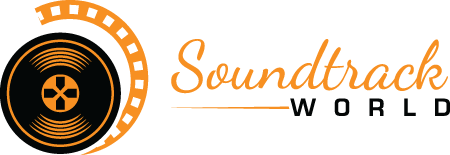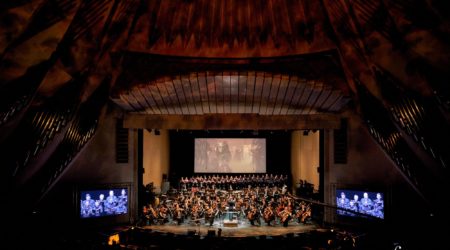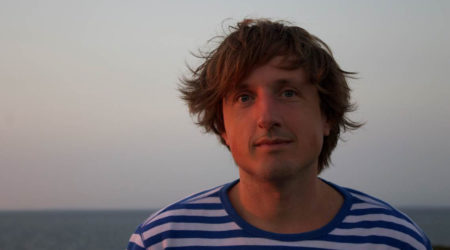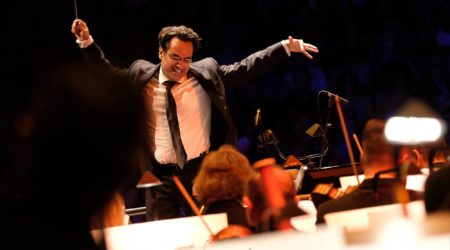During the 2018 edition of the film music festival Fimucité I had the privilege to interview Christopher Young: a very interesting composer with decades of experience in writing music for films like Hellraiser, The Shipping News, Swordfish, Spider-Man 3, The Monkey King and many more. Before this interview I had already heard many stories about what a fun person he is to talk to, and I was definitely not disappointed. We had a pleasant talk about his career, his love for film music in general and his method of working and, in addition, he was also interested in my love for film music. He will be returning as one of the main guests for the 2019 edition of the festival as well, in case you are interested in meeting him after reading this conversation. This interview was held on September 28, 2018.
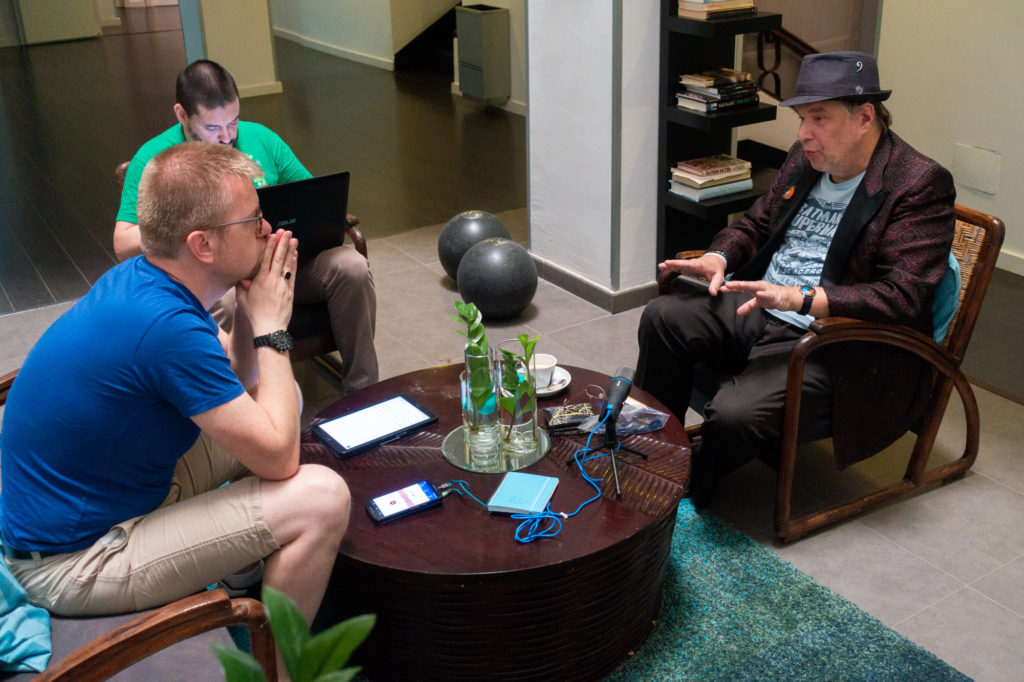
Anton Smit: For my first question, how, as a jazz drummer, did you get involved in composing film music?
Christopher Young: I was even a rock drummer before that. It really was by accident that this happened. It must have been around 1972 or 73. I went into a record store. That is back in the days when records cost like seven dollars or something. I must have gone there with the intention of buying a specific record, but then I had a spare seven dollars left over, and I saw this record across the room in the ‘musical theater and soundtracks’ section. It was very small in those days. The cover of it was beautiful and it was called The Fantasy Film World of Bernard Hermann. It has suites of scores that Bernard Hermann wrote for fantasy films with Journey to the Center of the Earth, The Day the Earth Stood Still, Fahrenheit 451 and The Seventh Voyage of Sinbad. I was very much into science fiction, reading science fiction at the time, so I knew Journey to the Center of the Earth by H.G Wells. That is where I became really aware of the existence of music in movies. I had seen movies, but I was not addicted to them, and certainly not paying attention to the music. I took the record back home and put the needle on the record. It was “Mountain Top and Sunrise” from Journey to the Center of the Earth, and I was immediately in love with Hermann’s music. I started researching the movies he had done, and that just blossomed. In over a week I had become addicted to film music, because I was just starting to write, it made perfect sense to look into film music. I fell in love with the music first. There are some film composers, with whom you have talked to, I am sure, who will talk about how they loved movies when they were younger. I liked movies, but I never really loved movies. I always loved music. It was just not film music at first: it was rock, jazz, which what was on the radio. The orchestral movie music came later. I connected with the music first, and it took me to the movies. Then I recognized it what it does.
In the ‘70s you could not study film music in school, now you can really anywhere. You were kind of on your own. There were a few books and film music records were hard to find. You usually had to go to New York City to go to bootleg record stores to find bootleg recordings of Bernard Hermann’s music in other film scores. I started to acquire records of film music. That is pretty much how I learned: watching movies in theaters and recording the audio if it did not have a record and listen to how the music is playing.
AS: Do you have a large soundtrack collection nowadays?
CY: I have a gigantic collection of records and CDs of film composers. I do not listen to them as much as I used to. When I was younger and when I was learning how to write film music, I used to listen to them continuously. It has not left my mind, they are still there. It is just that I don’t spend as much time going out and hunting down CDs of film music anymore.
AS: Is that also because you do not want to have it interfering with your own creativity?
CY: It is a bit of that, for sure. I understand film music. I get it. It is the world I live in, and because I am always wanting to expand my thinking musically, I am always hunting down something new that falls out of the film music world. Since I still love running for orchestra, I am always chasing down some contemporary classical music. That is my big thing. I have a giant film music collection, and the next giant collection I have is contemporary classical music, especially orchestral music. Not so much film music now. I should, but I don’t. I am still old school. The people whose music that developed my passion, were guys like John Williams, Jerry Goldsmith, Lalo Schifrin, Bernstein, and David Raksin. I was more interested in that generation – the old school way of thinking of film music.
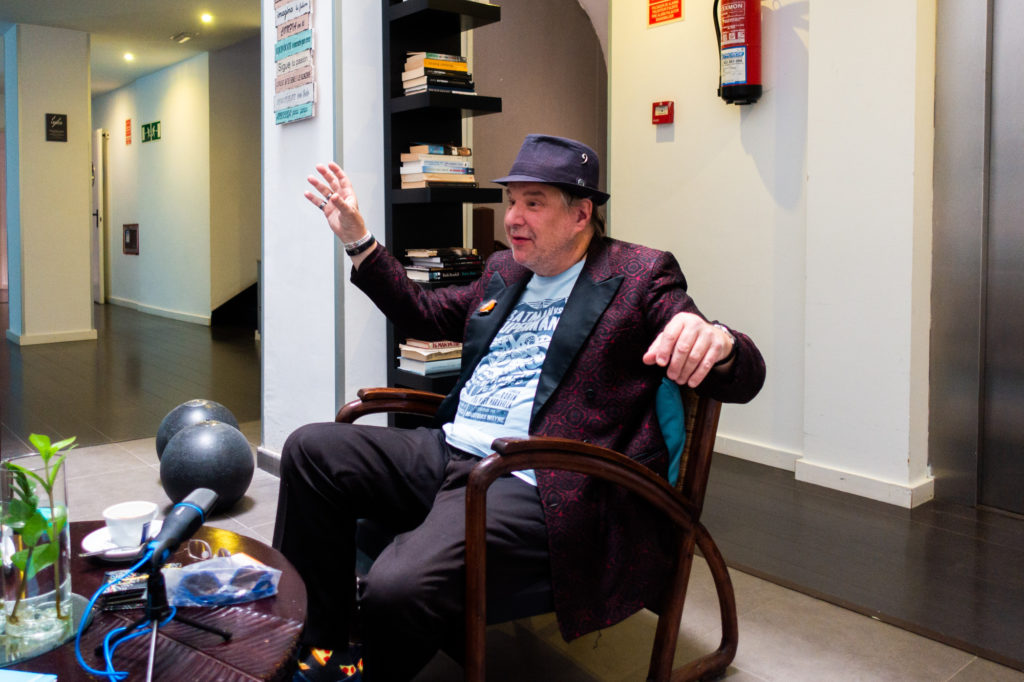
AS: You have been scoring since the ‘80s. Have things changed in your writing process? Are you making use of present-day technology?
CY: You have to embrace new technology, if you want to stay alive. Those who didn’t, no matter how talented they were, kind of faded away. There are some who rejected the technology or rejected the integration of electronics. But as you know, probably 90% of film music is based upon the electronic way of thinking about things. So you have to be aware of it. The master, of course, is Hans Zimmer. He has got that down. He is the leader. You have to be aware and cognizant about it. I think of myself as an old school guy. I have one foot in the old way of thinking, and the other foot in the new way. I can not abandon my addiction to the music of Max Steiner, Erich Wolfgang Korngold or David Raksin, whom I have studied with. I love that old melodic, orchestral, rich, harmonic and acoustic world. On the other hand, I do love what electronics bring into things. Yes, I have adapted, but in fact, when I am writing, I am still sitting at a desk with paper and a piano. I mean who does that? John Williams does that. He does not sit in front of a synthesizer and write. I am old school in that regard. In fact I would be lying to you if I said I was Mr. Tech-head. I have a couple of assistants who are tech-heads. I know exactly what I want and they help facilitate it.
Interestingly, just last week a sample library was released by 8Dio: They are one of the biggest companies that release sample libraries for composers. They have just released a two-disk library of some of the sounds that I have collected and created over the years. Essentially from the more spooky, horror – whatever you wanna call it – thriller world.
AS: And these are instruments?
CY: More than 90% are manipulations of acoustic instruments. The same stuff that I have used in my early scores and still use today. For instance, there is a lot of modified piano by mutating the strings to get different kinds of resonances, articulations or timbres. Moving the microphone around. Playing things backwards, forwards, upside down, here, there and everywhere. But it is all from a piano. The piano is an unlimited resource of sounds.
AS: When you are going to score for a new movie, you probably see images of the movie or just a script. How do you start?
CY: I start by listening to what the director might have to say about what he is looking for. I do not want to go off and go chase something that has nothing to do with what his vision of the movie is. Any smart film composer will start off by picking the director’s brains. That is what I do. Once I get an indication of the direction he thinks he wants to go, then I will watch the movie once or twice, and then I do not watch it for about a week, a week and a half, sometimes even two weeks, depending on how much time I have. I just walk around with the movie in my head and with my cell phone, with the voice memo part of it. I have got thousands and thousands of files that have been accumulated on my cell phone over the years. I just sing into it. I walk around and I think about the movie and I start humming something, or something comes out of my mouth that is a reflection of some idea that I have. Over a period over those two weeks I just let it go: I will not evaluate whether it is good or not, it is just sort of a stream of consciousness. At the end of that period I will review what I have done, and see if there is anything in there that might be appropriate for the movie. I will extract those theme ideas, flesh them out in a sketch format, and then look at the picture to combine certain themes with certain characters, or to define certain themes to the whole movie. Then we really works these out.
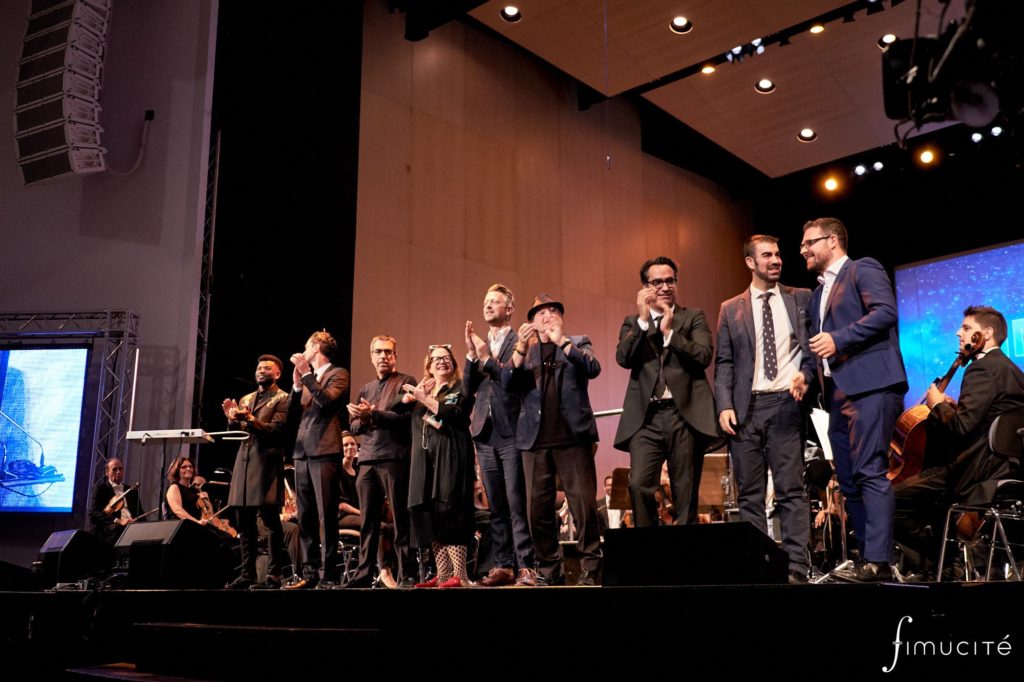
Usually the director and I will determine the major thematic subdivisions of the movie: the character themes, the bigger picture of the movie as a theme. I will come up with three alternatives, three different versions of that theme, and I will do a synth mockup of them if it is going to be acoustic. If it is going to be a synth score, then it is what it is. More often I am being asked to do acoustic scores. So these are mockups, and then I have the director come over and show him the three options for each theme that is written to a certain scene, or sometimes not written to a scene, to show potential themes. With any luck he will pick one of the three. When he likes, for example, a character’s theme, but he may not like another character’s theme or the theme for the picture in general. At least I know that every scene that I think I am going to use the approved character’s theme in, I can start focussing on those scenes.When he gets me the green light for the main theme for the whole movie then I can jump to that
But with that said, I usually have the figure out the main theme for the movie first, the bookends: the main title, and I still like writing end titles. That is not popular anymore. End titles are usually music editors taking cues from the movie, and they just cut them together. Think of John Williams, he became the spokesperson for what end credit music could be. Look at Raiders of the Lost Ark, image that with just edited cues together. It would not have the same impact. We love that score, because one of the reasons is that incredible end credits music. Those days are, kind of, gone. If I am given permission, I try to write the music for the end credits, and when it is finished they love it and are very grateful.
AS: For aspiring composers who want to work in this field, what kind of advice can you give them?
CY: This is really a tough one. I can only say that there are a thousand and one reasons they will come across to discourage them from wanting to do it. There are many more reasons that will be presented to them for why they should not pursue it, as opposed to the handful of reasons why they should. It is a crazy adventure to want to set out on, if you are not a rockstar, if you are a rockstar you have a better chance. The doors are kind of open for you, immediately. If your family is in the business the door is open for you anyway. They won’t if you don’t have family in the business. The majority of people that get involved in film music are kind of like me, who had a dream and fell in love with it and then pursued it on the base of their mad love for it. My advice to the young aspiring composer is that film composing is about the long journey, about developing over a period of time, of hopefully creating a career that is constantly rising. Not like rock ‘n roll, with rock ‘n roll by the time you are 22, you are kind of on the roll, but it is kind of over by the time you are 38 or something. With film music, like John Williams, you can be writing into your eighties. John Williams was Johnny Williams at one time. He didn’t write Jaws until he was 42.
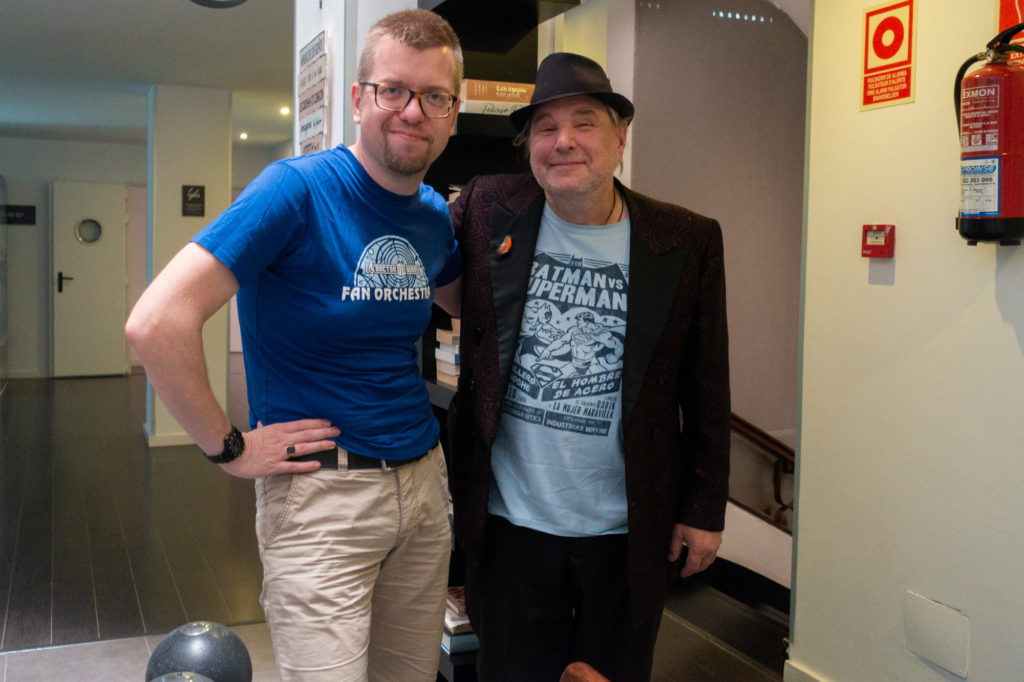
I would just ask the young composer not to have unrealistic expectations, that they can apply themselves, and that they work like motherf-ers at it. Try to improve their writing skills, and really to go out and do the politicking that is involved in making their career. There is no reason why it can’t happen. I say, stick to your guns and if you identify film music as something you cannot leave, because your love for it is so sincere, then give it time. Do not expect miracles to happen. When I moved to Los Angeles I was a fool. I was expecting things to happen immediately, and I got very depressed when not a lot had happened in my first couple of years there. It takes time to establish.
I am, of course, a big fan of Los Angeles. All the composers that I meet, like the ones here at the festival during my master class – I travel around to these classes – and anyone who wants to move to Los Angeles, or is thinking about doing it, I always encourage them, because in fact, let’s face it, Los Angeles is the center for making movie music. In the United States for sure, I think in the world, and my guess is in the universe as well. It is the place where you should up end up going. If there is anything I can do with young composers to help facilitate that I get very excited. My advice would be to stick to your guns. It can happen at any time. You could become a famous film composer when you are in your twenties, but that does not happen that often. If you could think of a single composer, became a celebrity, when they were in their twenties, no. Thirties maybe, forties sure, even fifties, look at Gustavo Santaolalla, the guitarist from Argentina. He was in his mid-fifties when he finally did Babel. It can come at any time, and the requirements of the kind of compositional talent that is required today is different than it was when I started. Anything goes now, not back then, then you had to write for orchestra. You had to write melodies that were immediately memorable. Those days are pretty much gone. You do not have to be John Williams, you can play guitar like Gustavo and just write for the right movie and you got an Academy Award.
